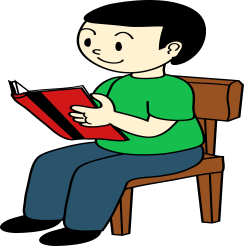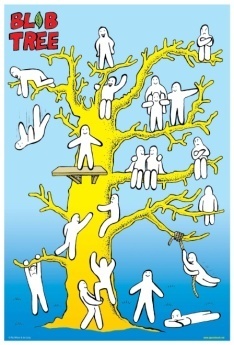
Short term plan
Lesson plan
|
Unit of a long term plan: Hobbies and Leisure |
School: №12 T. Rustemov |
||||||||||||||||||||||||||||||||||||||||||||
|
Date: |
Teacher name: Alimbekova Dildora |
||||||||||||||||||||||||||||||||||||||||||||
|
CLASS: 7 |
Number present: |
absent: |
|||||||||||||||||||||||||||||||||||||||||||
|
Lesson title |
Discussion about hobbies and leisure activities |
||||||||||||||||||||||||||||||||||||||||||||
|
Learning objectives(s) that this lesson is contributing to (link to the Subject programme) |
7. L4 Understand with little support some of the implied meaning in extended talk on a limited range of general and curricular topics. 7. S3 Give an opinion at discourse level on a growing range of general and curricular topics 7.S1.Use formal and informal registers in their talk on a limited range of general topics and some curricular topics |
||||||||||||||||||||||||||||||||||||||||||||
|
Level of thinking skills |
Knowledge, Understanding, Application, analyses |
||||||||||||||||||||||||||||||||||||||||||||
|
Lesson objectives |
All learners will be able to: -listen and make up sentences using hobby activities -complete the sheets sheet by asking questions -talk over the hobbies and leisure activities in groups and in pairs with some support Most learners will be able to: --express their opinion using more expressions Some learners will be able to : -prove their opinion with some details while they are acting and discussing |
||||||||||||||||||||||||||||||||||||||||||||
|
Assessment criteria |
. Provide a point of view in conversations and discussions . Apply the difference between formal and informal speech in a talk |
||||||||||||||||||||||||||||||||||||||||||||
|
Values links |
When a habit begins to cost money, it is called a hobby |
||||||||||||||||||||||||||||||||||||||||||||
|
Cross-curricular links |
Self study, Kazakh |
||||||||||||||||||||||||||||||||||||||||||||
|
Previous learning |
Students know names of different kinds of hobbies. |
||||||||||||||||||||||||||||||||||||||||||||
|
Plan |
|||||||||||||||||||||||||||||||||||||||||||||
|
Planned timings |
Planned activities (replace the notes below with your planned activities) |
Resources |
|||||||||||||||||||||||||||||||||||||||||||
|
Start 7 min |
G (G)Drilling
activity (Individually
work) L ( Differentiation: Teacher gives examples: I like golf because it is exciting and fun. AFL: Orally. Those who can use more adjectives will get a praise. |
7p Excel student’s book
|
|||||||||||||||||||||||||||||||||||||||||||
|
Middle 5-min
10-min
5-min
8-min
6-min |
P
AFL: orally G: Task 2: “Forced debate” in this task students sit in two columns and say their own opinion in one sentence in term according to the task. Why do people need to have a hobby? (for first column) Why do people needn’t to have a hobby? (for second column) A student should prove his\ her opinion and speak one by one.
Descriptor: A leaner -Sits in two columns; -Talks to the learner opposite to him or her. Differentiation for more able learners: can prove their opinion widely using more expressions and using “Because” to answer the questions. Differentiation for less able learners: Some can explain their speech in native language AFL: Group expert;
I. Task3. Listen to Petra talking about her hobby and complete notes
Differentiation for more able learners: Check their partner’s work . AFL: Peer assessment Task 3.
“ Bring your photo showing your favorite hobby. (At Pervious lesson students were told to bring their photos) Show your partner. Ask questions about each other’s hobbies, act out the dialogue. Differentiation by ability: More able students help their partners to answer the questions
Differentiation: Less able learners complete the sheet. More able learners add additional information. Descriptor A learner: Brings his\her photo; Finds his\her partner; Guesses partner’s hobby; Acts out the dialogue: Gathers more information: Completes the sheet; AFL: Gallery. All students gather the sheets and look through who could get more information |
Excel Student’s book p7
Marking sheet
Excel. Student’s book p 8 CD
Stickers
Sheet paper
|
|||||||||||||||||||||||||||||||||||||||||||
|
End
4-min |
A student should mark the man according to his or her level of understanding the theme of the lesson and give a reason. |
Feedback paper |
|||||||||||||||||||||||||||||||||||||||||||
|
Additional information |
|||||||||||||||||||||||||||||||||||||||||||||
|
Differentiation – how do you plan to give more support? How do you plan to challenge the more able learners? |
Assessment – how are you planning to check learners’ learning? |
Health and safety check |
|||||||||||||||||||||||||||||||||||||||||||
|
Differentiation by support: Teacher gives examples: I like golf because it is exciting and fun Task2.
Differentiation for more
able learners: Бұл материал сайт қолданушысы жариялаған. Материалдың ішінде жазылған барлық ақпаратқа жауапкершілікті жариялаған қолданушы жауап береді. Ұстаз тілегі тек ақпаратты таратуға қолдау көрсетеді. Егер материал сіздің авторлық құқығыңызды бұзған болса немесе басқа да себептермен сайттан өшіру керек деп ойласаңыз осында жазыңыз
Short term
plan
Lesson
plan
| |||||||||||||||||||||||||||||||||||||||||||||


 reeting the ss. Setting the lesson objectives to the
class
reeting the ss. Setting the lesson objectives to the
class
 earners listen to “new hobby activities” and repeat
them.
earners listen to “new hobby activities” and repeat
them.





















